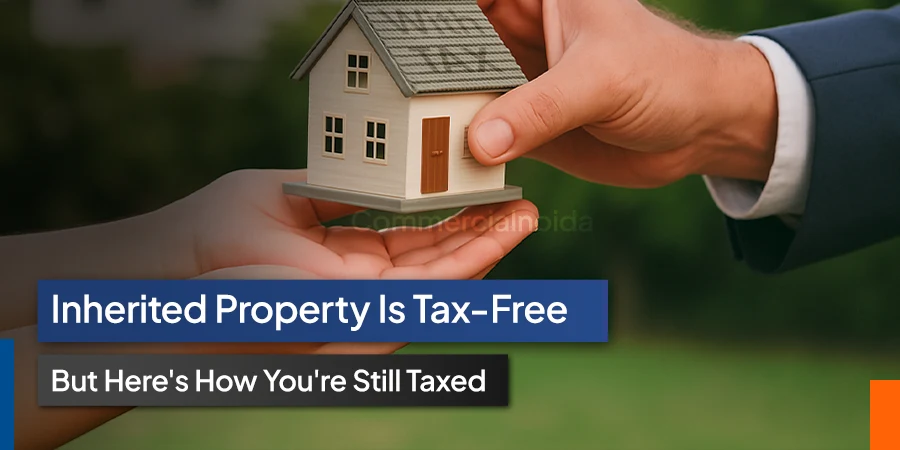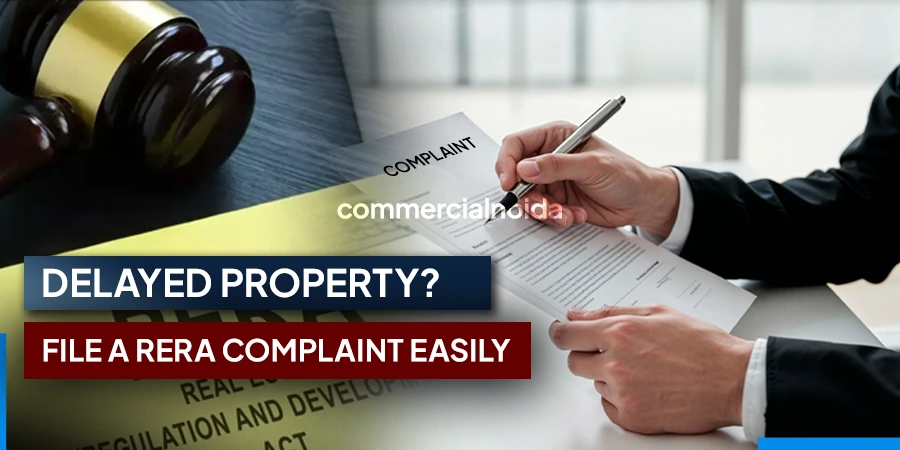
What Is Capital Gain Tax on Property?
An investor invests in properties to earn returns and invest in other properties to earn more. However, this journey of property investment includes various aspects, including taxes. Whenever an investor sells a property, They always needs clarification about taxes.
They wants to know what kind of taxes will be levied, how they can save their hard-earned money from excessive taxation, and what exemptions they can get under different sections of the Income Tax Act. Today, we will assess the comprehensive taxation on property selling, such as Long-term capital gain (LTCG) or short-term capital gain (STCG).
What Is Capital Gain Tax On Property?
In India, when somebody sells their property at a higher rate than the actual purchase rate. The excess amount he earned after selling the property, rather than the actual purchase rate, is subject to tax on property sales under the Income Tax Act.
Types Of Capital Gains Tax On Property Sale
What type of tax will be levied on your property is decided by the time you hold the property. For example: If you have the property for less than two years, it will attract short-term capital gain tax (STCG), and if you hold it for more than two years or two years, It will attract Long Term Capital Gain Tax (LTCG).
For example, assume you purchased and sold a property within two years . You will come under STCG; if you sell your property after two years, you will come under the LTCG tax rate. The STCG tax rate is according to the tax slab, and the LTCG tax is fixed at 20 per cent.
Exemptions On Capital Gain Tax
Tax exemptions on capital gains from property sales can be advantageous if you understand the criteria and sections of the Income Tax Act. Here's a simplified breakdown:
Short-Term Capital Gains (STCG) on Sale of Property:
If you're below 60 years old and your total income is under Rs. 2,50,000, you're exempt from paying capital gains tax on property sales. The exemption limit for residents aged 60-80 is Rs. 3,00,000.
Long-Term Capital Gains (LTCG) on Sale of Property:
Sections 54, 54GB, 54F, and 54EC offer exemptions based on reinvestment. For instance, under Section 54, you get tax relief if you sell a property and buy another for residential purposes.
Other Conditions for Tax Exemption:
No reinvestment for two consecutive financial years, provided the property was inherited. Agricultural land is exempt from taxation as it's not considered a capital asset.
Exemptions Under Different Sections:
• Section 54: Exemption for residential property reinvestment.
• Section 54EC: Exemption for specific bonds investment.
• Section 54F: Exemption for reinvestment in a long-term asset other than residential property.
• Section 54GB: Exemption for reinvestment in residential property with special conditions for equity shares.
Examples
Selling an old house and purchasing a new one for residential purposes under Section 54. Investing in specific bonds after selling property under Section 54EC. Remember, previous exemptions may be taxable if you sell within specified time frames. Consulting a tax expert can help optimise tax savings.
How To Calculate Long-Term And Short-Term Capital Gain?
Calculating capital gains on property sales involves different formulas for short-term and long-term gains.
Short-term Capital Gain (STCG) Calculation:
• Subtract transfer expenses from the sale consideration to get the net sales consideration.
• Deduct the cost of acquisition (purchase price) from the net sales consideration.
• If there were any costs of improvement, subtract those as well.
• The result is a short-term capital gain.
Example:
• Sale Consideration: Rs. 180,000
• Transfer Expenses: Rs. 5,000
• Cost of Acquisition: Rs. 150,000
• Cost of Improvement: Rs. 0
• Short-Term Capital Gain: Rs. 25,000
Long-term Capital Gain (LTCG) Calculation:
• Adjust the sale consideration as per Sec. 50C if applicable.
• Subtract transfer expenses from the adjusted sale consideration.
• Determine the indexed cost of acquisition using the Cost Inflation Index (CII) for the relevant years.
• Subtract the indexed cost of acquisition from the adjusted sale consideration.
• If there were any costs of improvement, subtract those as well.
• The result is the long-term capital gain.
Example:
• Sale Consideration (as per Sec. 50C): Rs. 500,000
• Transfer Expenses: Rs. 10,000
• Indexed Cost of Acquisition (based on CII): Rs. 362,500
• Indexed Cost of Improvement: Rs. 0
• Long-Term Capital Gain: Rs. 127,500
These calculations help determine the taxable capital gains from property sales, providing clarity on the financial implications of the transaction.
Conclusion
Understanding capital gains tax on property sales is essential for investors to navigate taxation efficiently. Whether it's short-term or long-term gains, knowing the tax implications and available exemptions under the Income Tax Act can help maximise savings.
Investors can plan their finances effectively by calculating capital gains using the provided formulas. Consulting a tax expert for personalised guidance can further optimise tax strategies and ensure compliance with regulations. Ultimately, awareness and strategic planning are vital to managing capital gains tax on property sales.






























































































































.webp)

































































































.webp)















































































.webp)
































































































